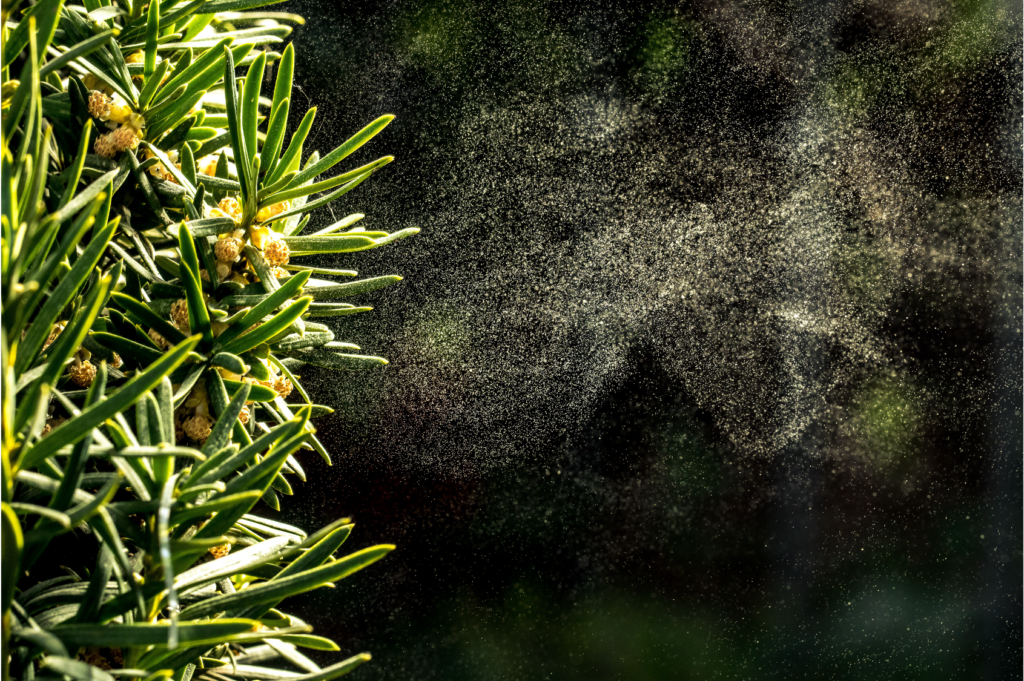By Marj Watkins and Suzanna Leigh
The blessings of flowers cheers us immensely, but kerchoo! Their pollen has us sneezing our heads off! What can we do? Plenty, really. Nature provides antihistamines.
Nettles can sting you, but also provide an antihistamine, so make nettle soup! Take a paper bag and scissors, find a roadside rife with nettles, or a patch of nettles away from road dust. Wear gloves! Clip off the nettle tops into a bag. When you have a bag full of nettle tops, go home and make nettle soup.
Marj’s Nettle Soup
4 cups bone broth, or 2 cans of chicken soup plus 2 cans of water.
1 quart nettle tops
Salt and pepper to taste
Suzanna’s Nettle Soup
In a 2-quart pan, sauté:
A minced clove of garlic
A pinch of dried chili pepper flakes (more if you like hot, spicy food)
A teaspoon of your favorite herbs (I like rosemary, sage, and thyme from my garden)
One chopped onion
When the onion is translucent, add one chopped medium or large potato. The smaller the chunks, the faster it cooks. Cover with chicken, beef, or vegetable stock. Add salt to taste. Cook until potatoes are done.
In the meantime, blanch about a quart of fresh nettle tops. Add to the cooked potatoes and broth and blend in blender (otherwise the nettles tend to be hairy).
Serve with salad and whole-grain bread, with nut butter or cheese.
Ginkgo Biloba is another of nature’s antihistamines, and is also known for boosting memory. According to the anthology “1,801 Home Remedies,” it acts as an anti-allergen. The book, researched by Jane Bogart and Elizabeth Shimer, advises taking 60-240 mg a day.
Quercetin is what gives purple grapes their color, and puts the green in green tea. It inhibits the release of histamine. We are advised to take 500 mg twice daily, but not if you are already taking nettles. Quercetin is also available in formulations where it is combined with bromelain, to help prevent stomach irritation.
Honey. Many people find local honey effective against allergies. Did you know that honey is seasonal? And OMG there are so many flavors! Use local honey from whatever flowers you are allergic to. My favorites are wildflower or fireweed honey. There are infused honeys, as well. Minglement/the Roaster has a good selection, as does All Things Rich (at The Waterfront Market at Ruston). Sun Valley Farm on Maury Island often carries local honey at their farm stand. Some people use bee pollen, which is VERY seasonal. Make sure it is local. Some people with asthma say that eating a bit of local honeycomb gives them instant – though brief – relief from an attack, and that even smelling honey helps.
Repel pollen and dust. Stay inside, with doors and windows closed. A HEPA filter will filter out 99.97% of the pollen dust and any airborne particles 0.3 microns or larger. Pollen hits its peak in the early evening. Storms begin with high humidity, which makes pollen grains swell, burst, and release their irritants. So seek shelter inside before a thunder storm, and stay inside for 3 hours after the thunder stops. When you have to go outdoors, wear wrap-around sunglasses to keep the pollen out of your eyes. A face mask helps too. Wash your hair before going to bed, so that you don’t transfer pollen to your pillow.
Clear the air. Dust all flat places with a cloth wrung out of water with vinegar, including picture frames and glass. Vacuum or remove the carpets, and wash the floor with vinegar in the water. This will cleanse the floor of dust mites.
Allergies to pets. Keep your dog and kitty out of your bedroom; animal dander stays in your bedroom even after your pet has left. Give your dog a bath at least once a week (you may have a hard time giving your cat a bath).

